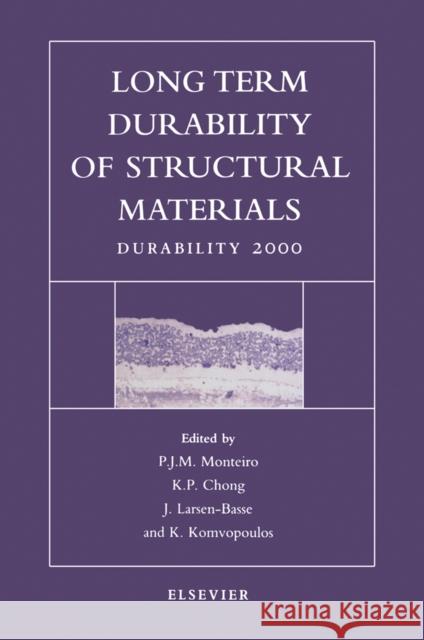Long Term Durability of Structural Materials » książka
topmenu
Long Term Durability of Structural Materials
ISBN-13: 9780080438900 / Angielski / Twarda / 2001 / 312 str.
"Long Term Durability of Structural Materials" features proceedings of the workshop held at Berkeley, CA in October, 2000. It brought together engineers and scientists, who have received grants from the initiative NSF 98-42, to share their results on the study of long-term durability of materials and structures.
The major objective was to develop new methods for accelerated short-term laboratory or in-situ tests which allow accurate, reliable, predictions of the long-term performance of materials, machines and structures. To achieve this goal it was important to understand the fundamental nature of the deterioration and damage processes in materials and to develop innovative ways to model the behavior of these processes as they affect the life and long-term performance of components, machines and structures. The researchers discussed their approach to include size effects in scaling up from laboratory specimens to actual structures. Accelerated testing and durability modeling techniques developed were validated by comparing their results with performance under actual operating conditions. The main mechanism of the deterioration discussed included environmental effects and/or exposure to loads, speeds and other operating conditions that are not fully anticipated in the original design. A broad range of deterioration damage, such as fatigue, overload, ultraviolet damage, corrosion, and wear was presented. A broad range of materials of interest was also discussed, including the full spectrum of construction materials, metals, ceramics, polymers, composites, and coatings. Emphasis was placed on scale-dependence and history of fabrication on resulting mechanical behavior of materials.










